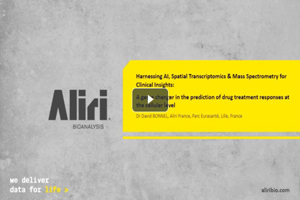ANALYTICAL/QUALITY ARTICLES
-
Proteomics Tools: A Resurrection
For decades, the evolution of proteomics has lagged. Now, a resurrection is underway. New tools are dismantling limitations, signifying a maturation of systems biology.
-
The "Middle Ground" Advantage: Why Alnylam Is Betting Big On Chemoenzymatic Ligation
Though conversations are picking up around this hybrid approach, we aren’t exactly known as an industry that embraces risk no-holds barred. While there are a handful of manufacturers and CDMOs who are embracing the hybrid model today, there are many more that are likely to hold out for the next-next gen approach: Fully enzymatic oligo production. However, as Alynlam’s CTO and Chief Quality Officer Tim Maines argued, embarking into the “middle ground” of enzymatic ligation is essential for garnering the step-by-step learnings needed to help us unlock even bigger manufacturing wins in the future.
-
The Monster Under The Bed: Defining Potency in the mRNA Space
During the CASSS mRNA Symposium last spring, a seemingly simple, straightforward question was raised: How are we defining and measuring our product’s potency? But as we already know, this is far from a straightforward question — and, dear reader, based on the resulting discussion amongst regulators and panel members, it became clear we have a lot of different definitions on what potency even is in the mRNA space.
-
Innovations In The Oligonucleotide Supply Chain: Regulatory Considerations For Materials, Manufacturing, And Lifecycle Control
Oligonucleotide therapeutics have rapidly advanced into late-stage and commercial development, shifting regulatory focus toward the maturity of manufacturing and supply chain control rather than therapeutic novelty. Regulatory success now depends on how effectively sponsors translate innovative chemistries into well-characterized, scalable, and sustainable materials and processes.
-
The mRNA Supply Chain Revolution: Materials, Methods, And Momentum
mRNA innovation now hinges as much on manufacturing materials as on molecular design, with novel inputs shaping performance, cost, and scalability. As these less-mature materials move rapidly into production, strategic material selection and supplier alignment are becoming critical to manufacturing resilience and long-term success.
-
In Vivo's Biggest Threat — Comparison To Old Models
In vivo CAR-T is not simply ex vivo without a manufacturing step. It is a different modality that relies on biological systems to regulate outcomes.
ARTICLES, APP NOTES, CASE STUDIES, & WHITE PAPERS
-
Expectations On The Pathway To GMP For Gene-Modified Cell Therapies
Learn how a robust understanding of the RNP’s critical process parameters and CQAs is crucial for ensuring product consistency, enhancing patient safety, and maintaining regulatory compliance.
-
Comparing Real-Time And Digital PCR Technologies
Which PCR technologies are the most effective? Compare digital PCR (dPCR) and real-time or quantitative PCR (qPCR) to determine the best choice for your labs.
-
Assessing Doggybone DNA For In Vitro Transcription
In this study, we evaluated the performance of two dbDNA IVT templates, each encoding the same mRNA (firefly luciferase or Fluc), by looking at the mRNA purity and in vivo potency of the mRNA IVT’d from each template.
-
Charged For Action: The Hidden Secrets Of AEX Oligonucleotide Analysis
Understanding how to fine-tune pH and ionic strength allows for the detection of truncated sequences and single-nucleotide variants, turning complex purification challenges into reproducible data.
-
Precision In Nanoparticle Processing And Monodispersed Lipid Nanoparticles For Advanced Therapeutics
Precision in nanoparticle processing is key for drug delivery and vaccines. Learn how monodispersed formulations enhance reproducibility and stability for next-generation therapeutics, like RNA-LNPs.
-
From Data To Decisions: Accelerating Your mRNA Drug Development With Analytics
To stay ahead in the competitive landscape of mRNA development, adopt a comprehensive QC strategy today and begin conducting meaningful tests to ensure the quality of your test articles.
-
CRISPR Off-Target Editing: Prediction, Analysis, And More
A crucial consideration for researchers is off-target editing – unintended DNA modifications at sites other than the intended target. Explore the complexities and strategies to mitigate these effects.



























